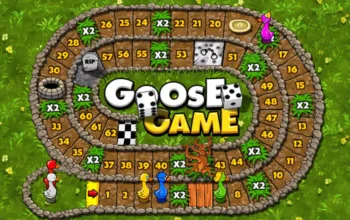In the world of gaming, character traits play a crucial role in defining the uniqueness and individuality of each player’s avatar. These traits shape the behavior, skills, and abilities of the virtual characters, making the gaming experience more immersive and engaging. Vicky Sims, a renowned game developer, has introduced a fascinating collection of 100 base game traits that provide players with a wide range of options to customize their characters. In this article, we will explore these traits, their significance, and how they enhance the gaming experience.
Introduction: The Importance of Base Game Traits
In any game, the characters we control need to possess distinct personalities that affect their interactions, decision-making, and overall gameplay. Base game traits serve as the foundation for building these characters, giving them depth and complexity. By choosing specific traits, players can shape their characters’ strengths, weaknesses, and behavioral patterns, creating a unique gaming experience.
Positive Traits
Adventurous
The adventurous trait adds a sense of excitement and thrill to the character. Adventurous characters tend to seek out new challenges, explore uncharted territories, and take risks. This trait is ideal for players who enjoy discovering hidden treasures, embarking on epic quests, and facing daring adventures.
Ambitious
An ambitious character is driven by a strong desire to succeed and achieve greatness. They set high goals for themselves, constantly striving to improve and reach new heights. Ambitious characters are often determined, focused, and willing to put in the necessary effort to accomplish their objectives.
Charismatic
A charismatic character possesses exceptional social skills and charm. They excel at persuasion, negotiation, and building relationships with other in-game characters. Charismatic characters are adept at navigating social situations, making them valuable assets in team-based games or those involving intricate storylines.
Creative
The creative trait fuels imagination and innovation within a character. Creative characters are adept at crafting unique solutions to problems, designing intricate structures, or creating stunning artwork. This trait is particularly useful in sandbox games that encourage players to build and customize their virtual worlds.
Determined
A determined character exhibits unwavering dedication and perseverance. They refuse to give up in the face of challenges, setbacks, or obstacles. Determined characters push through adversity, demonstrating resilience and inspiring players to overcome their own real-life obstacles.
Negative Traits
Aggressive
The aggressive trait manifests as a propensity for confrontation and conflict. Aggressive characters may resort to physical or verbal aggression when faced with opposition. This trait can add intensity to combat-focused games but may also lead to negative consequences in certain situations.
Arrogant
Arrogant characters possess an inflated sense of self-importance and superiority. They often look down upon others and may struggle with teamwork or cooperation. While this trait can introduce interesting dynamics and rivalries in games, it can also isolate the character and limit their potential alliances.
Impatient
Impatient characters have little tolerance for delays or waiting. They prefer instant gratification and can become frustrated when progress is slow. This trait can add a sense of urgency to time-sensitive games but may require players to strategize carefully to prevent impulsive decision-making.
Jealous
Jealous characters harbor feelings of envy and resentment towards others. They struggle with contentment and may engage in actions to sabotage or undermine their rivals. This trait can lead to intriguing storylines and complex character relationships but should be balanced to avoid excessive negativity.
Moody
Moody characters experience frequent and unpredictable shifts in emotions. They may alternate between highs and lows, affecting their interactions and decision-making. This trait can add depth and realism to characters, but players should be mindful of its impact on gameplay and relationships.
Neutral Traits
Analytical
The analytical trait highlights a character’s logical and strategic thinking abilities. Analytical characters excel at problem-solving, critical analysis, and decision-making. They thrive in games that require planning, resource management, and complex decision-making processes.
Curious
Curious characters possess an insatiable desire for knowledge and exploration. They eagerly investigate their surroundings, uncovering hidden secrets and uncovering new possibilities. Curious characters are well-suited for puzzle-solving games, detective stories, or any game that rewards exploration.
Independent
Independent characters prefer to rely on themselves rather than others. They are self-sufficient and self-reliant, often pursuing solo missions or activities. This trait can add an element of self-discovery and autonomy to a character, allowing players to forge their own path in the game.
Observant
Observant characters possess keen senses and attention to detail. They notice subtle clues, hidden paths, and potential dangers that others may overlook. This trait is advantageous in stealth-based games, puzzle-solving scenarios, or any game that requires careful observation and analysis.
Reliable
Reliable characters are known for their trustworthiness and dependability. They honor commitments, fulfill tasks diligently, and often serve as pillars of support for other characters. This trait can enhance cooperative gameplay, team dynamics, and the overall reliability of the character.
How to Choose Traits for Your Character
When selecting traits for your character, consider the desired playstyle, the game’s mechanics, and your personal preferences. Choose traits that align with your intended character development, and strike a balance between strengths and weaknesses. Experimenting with different combinations can lead to unique and rewarding gaming experiences.
Traits and Gameplay Dynamics
Base game traits significantly influence gameplay dynamics. They affect a character’s abilities, interactions with non-playable characters (NPCs), and the overall difficulty level of the game. Carefully chosen traits can provide advantages in specific scenarios, open new dialogue options, or unlock special abilities, adding depth and versatility to the gameplay.
Traits in Multiplayer Games
In multiplayer games, base game traits contribute to the diversity and strategic aspects of player interactions. Different trait combinations create unique team dynamics and complementary roles within a group. A well-balanced team with a variety of traits can tackle challenges more effectively, fostering cooperation and camaraderie among players.
Traits and Storytelling
Base game traits play a vital role in shaping the narrative and storytelling elements of a game. They influence how characters interact with each other, respond to challenges, and make decisions. Well-defined traits can create memorable characters and drive captivating storylines that immerse players in the game world.
Conclusion
Vicky Sims’ collection of 100 base game traits offers players a wealth of options to customize their characters and enrich their gaming experiences. These traits, ranging from positive to negative and neutral, provide opportunities for players to create unique personalities and engage with various gameplay dynamics. By carefully selecting traits that align with their desired playstyle, gamers can delve into immersive virtual worlds filled with intriguing narratives, strategic challenges, and cooperative multiplayer interactions.
FAQs (Frequently Asked Questions)
Q1: Can I change my character’s traits later in the game? A1: It depends on the game. Some games allow players to modify or evolve their character’s traits as they progress, while others have fixed traits that cannot be changed.
Q2: Are there any limitations to the number of traits a character can have? A2: Each game may have its own limitations on the number of traits a character can possess. Some games allow unlimited traits, while others impose restrictions to maintain balance and prevent overpowered characters.
Q3: Do base game traits affect the character’s appearance? A3: Base game traits primarily influence a character’s behavior, abilities, and interactions rather than their physical appearance. However, some games may incorporate visual cues or cosmetic changes to reflect certain traits.
Q4: Can traits be combined or layered to create unique character profiles? A4: Yes, in many games, traits can be combined or layered to create complex character profiles. This allows for more nuanced and diverse gameplay experiences.
Q5: How do base game traits impact the overall difficulty of the game? A5: Base game traits can influence the difficulty level of the game by providing advantages or disadvantages in certain scenarios. Traits that enhance combat abilities, for example, may make the game easier, while traits that introduce challenges or limitations can increase the difficulty.




